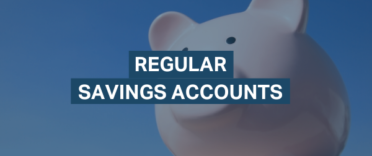 Most of us have regular payments going out from our bank accounts to pay the mortgage and other regular bills, you need to be aware, however,that there are three different methods for making regular payments from your bank each with there own set of rules.
Most of us have regular payments going out from our bank accounts to pay the mortgage and other regular bills, you need to be aware, however,that there are three different methods for making regular payments from your bank each with there own set of rules.
Standing orders
This is a fixed payment that you have instructed your bank to make at regular intervals. You can cancel the arrangement at any time.
Direct debit
To set this you will need to complete a direct debt mandate which gives a company the right to take money from your bank account on a regular basis, usually monthly, quarterly or annually. This payment may be for a fixed or variable amount and you can cancel it at any time by contacting your bank.
Recurring payments
This is a regular payment made by providing either your debit or credit card details to a company, rather than your bank details. This method of payment allows the company concerned to take money from your account whenever they feel you owe them money. The issue with this type of payment method is it can sometimes be difficult to cancel, if you no longer require the service for which you are paying. Each payment is a separate transaction which can mean that that one payment is stopped only for the payments to start up again when the due date comes around.
Why do I need to watch these monthly payments?
- Increased payments - under direct debit and recurring payment methods the supplier has the ability to increase the payments. The supplier has the duty to inform you of any increases prior to payment being taken but if, for instance, you have changed address then you may not have received the communication. A typical increase could occur where you have taken up a subscription special offer for 12 months, after which the subscription reverts to the full price. At the full price the magazine may not appear a bargain buy and you may wish to cancel.
- Paying for things you no longer use - mobile phone insurance, gym membership, appliance cover, house insurance for your old house, the list is endless. Go through all your regular payments in detail and cancel the ones you no longer need.
- Incorrect payments - you may have made changes to the monthly payments but the supplier has failed to change the direct debit. Go back to the supplier and request a full refund immediately.
What is the best way to cancel regular payments?
If you are paying by standing order or direct debit then the process is pretty straightforward. You just contact your bank, or go online, and request that payments are cancelled from the date you stipulate.
If, however, you are making recurring payements, as stated above, you need to do a bit more work to make sure no further payments are taken.
1. Contact the supplier and request that the payments are terminated making sure have a contact name or a transaction number.
2. Contact your back or credit card company to also cancel payments as a safeguard. Banks have a legal responsibility to help in cancelling recurring payments. Again make sure you have a contact name and a transaction number.
3. Make sure you check your bank or credit card account on the date that your next payment would have been due to ensure that a payment has not been taken. If a payment has been taken then contact both the supplier and your bank or credit card company and inform them unless payments are stopped immediately, and overpayments refunded, you will be making a complaint to the Financial Ombudsman. Request confirmation, in writing, within 7 days that future payments have been cancelled.
Check before you cancel payments that they do not form part of a contract as you will be in breach of this contract if payments are stopped.
Conclusion - carry out a regular audit on all your bank and credit card accounts
Most accounts these days can be accessed online, go into every bank and credit account and do the following:
1. Access your statements and go back a full year, as some payments may quarterly or annually. Some banks do have the online facility to view direct debits on their own, which makes this task a lot easier.
2. Check every regular payment on each statement, to make sure you understand why you are making these payments. Then decide if you still want each service and if not cancel it and save some money.
3. Check that you are making payments for the essential items, such as life insurance, house insurance, contents insurance, car insurance etc. These may have been cancelled in error and you may have been left without cover.
4. Finally, if you are paying monthly premiums for all your insurances check each policy and put the renewal date in your diary. Just before the renewal date shop around for a better deal and save yourself some money.





